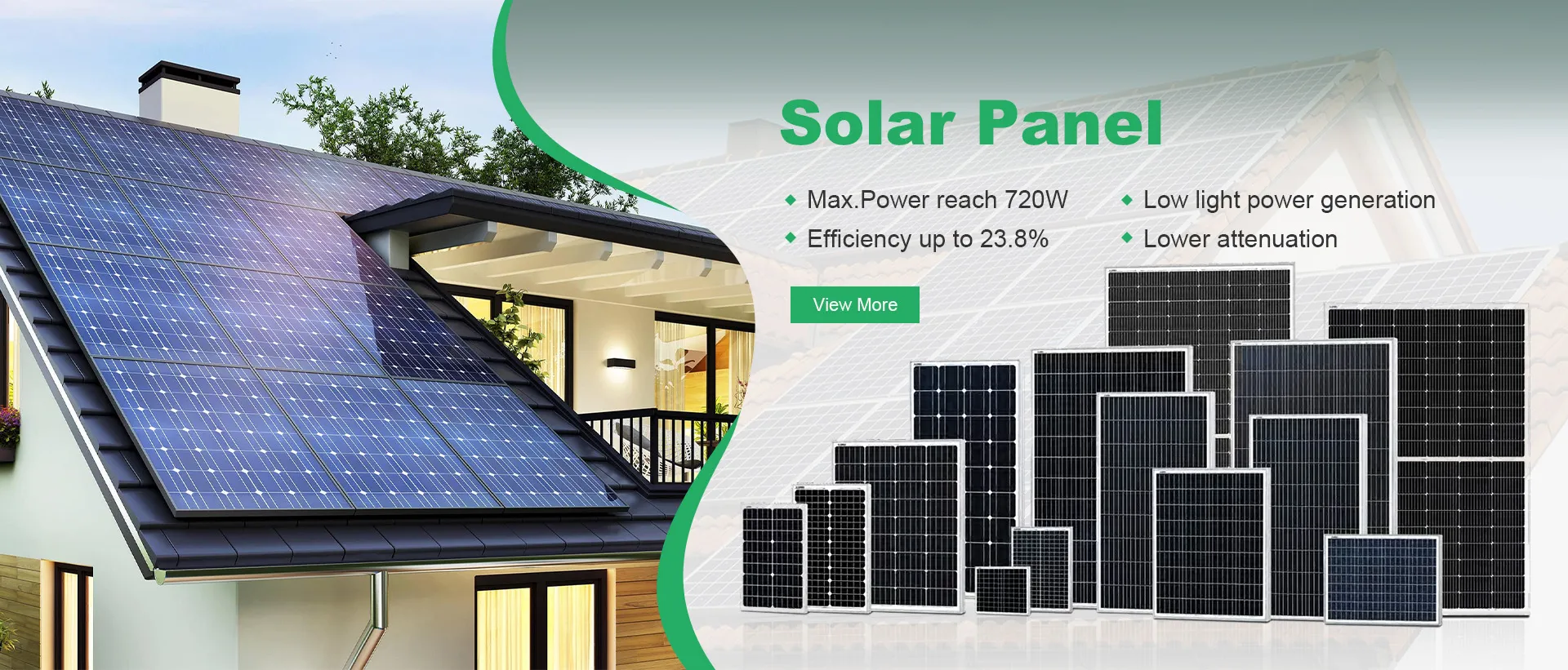Factors Influencing the Efficiency of Solar Panels and Their Impact on Renewable Energy Solutions
Understanding Solar Panel Efficiency Key Factors and Innovations
Solar energy has emerged as one of the most viable renewable energy sources in recent years, providing a sustainable alternative to fossil fuels. Central to the effectiveness of solar energy systems is the efficiency of solar panels. Solar panel efficiency refers to the amount of sunlight that a solar panel can convert into usable electricity. With advancements in technology, understanding the factors that influence solar panel efficiency is crucial for optimizing solar energy harnessing.
The Basics of Solar Panel Efficiency
Solar panels, primarily made of silicon, work by converting sunlight into electricity through the photovoltaic effect. The efficiency of solar panels is expressed as a percentage, indicating how much of the solar energy that hits the panel is converted into electrical energy. For instance, if a solar panel has an efficiency of 20%, it means that 20% of the sunlight it receives is transformed into usable electricity, while the remaining 80% is lost as heat or reflected light.
Key Factors Influencing Efficiency
1. Material Composition The type of material used in solar panels plays a significant role in determining efficiency. Monocrystalline panels, made from high-purity silicon, typically offer the highest efficiency rates, often between 15% and 22%. Polycrystalline panels, which are made from multiple silicon crystals, tend to be less efficient, ranging from 13% to 16%. Emerging technologies such as thin-film solar cells also contribute to efficiency discussions, although they generally lag behind crystalline panels in performance.
2. Temperature Solar panels are tested under standard conditions, but their efficiency can decline at higher temperatures. As the temperature rises, the performance of a solar panel can decrease due to increased resistance in the electrical output. Therefore, in regions with high ambient temperatures, it is vital to consider this factor when designing solar energy systems.
solar panel efficiency

3. Angle and Orientation The angle at which solar panels are installed can significantly impact efficiency. Panels should ideally be installed at an angle that optimizes their exposure to sunlight throughout the day. Additionally, the orientation, whether facing south, east, or west, affects the amount of sunlight received and thus, overall efficiency.
4. Shading and Dirt Even partial shading from nearby buildings, trees, or debris can drastically reduce the performance of a solar panel. Regular maintenance, including cleaning the panels and monitoring for any obstructions, is crucial for maintaining high efficiency levels.
5. Advancements in Technology Ongoing research and development in photovoltaic technologies offer promising advancements that could enhance solar panel efficiency. Innovations such as bifacial solar panels—which capture sunlight from both sides—and concentration photovoltaic systems that use mirrors or lenses to focus sunlight onto small, high-efficiency cells are paving the way for higher efficiency ratings. Additionally, the development of perovskite solar cells presents another frontier for improved performance, potentially achieving efficiencies of over 30%.
The Future of Solar Panel Efficiency
The future of solar panel efficiency is bright as technology continues to evolve. With increasing focus on sustainability and reducing carbon footprints, the demand for more efficient solar panels is likely to grow. Governments, researchers, and companies are investing heavily in improving materials, manufacturing processes, and integration techniques, aiming for solar systems that not only provide more power but also enhance the aesthetic and functional aspects of buildings.
In conclusion, understanding solar panel efficiency is essential for anyone looking to harness solar energy effectively. By considering factors such as material composition, temperature effects, installation orientation, and ongoing innovations, individuals and businesses can maximize their solar investments. As the world moves towards cleaner energy solutions, advancements in solar panel efficiency will play a pivotal role in shaping a sustainable future.
-
String Solar Inverter: The High-Efficiency Solution for Smart Solar EnergyNewsJul.14,2025
-
Revolutionizing Rooftop Energy with the Power of the Micro Solar InverterNewsJul.14,2025
-
Power Independence with Smart Off Grid Solar Inverter SolutionsNewsJul.14,2025
-
On Grid Solar Inverter: Powering the Future with Smart Grid IntegrationNewsJul.14,2025
-
Monocrystalline Solar Panels: High-Efficiency Power for the Future of Clean EnergyNewsJul.14,2025
-
Bifacial Solar Panel: A Smarter Investment for Next-Generation Energy SystemsNewsJul.14,2025







